
Toward financial inclusion: Shaping a national strategy for the UK
UK’s first Financial Inclusion Strategy aims to tackle vulnerability with better cash access, KYC innovation, community finance, and financial education.

UK’s first Financial Inclusion Strategy aims to tackle vulnerability with better cash access, KYC innovation, community finance, and financial education.
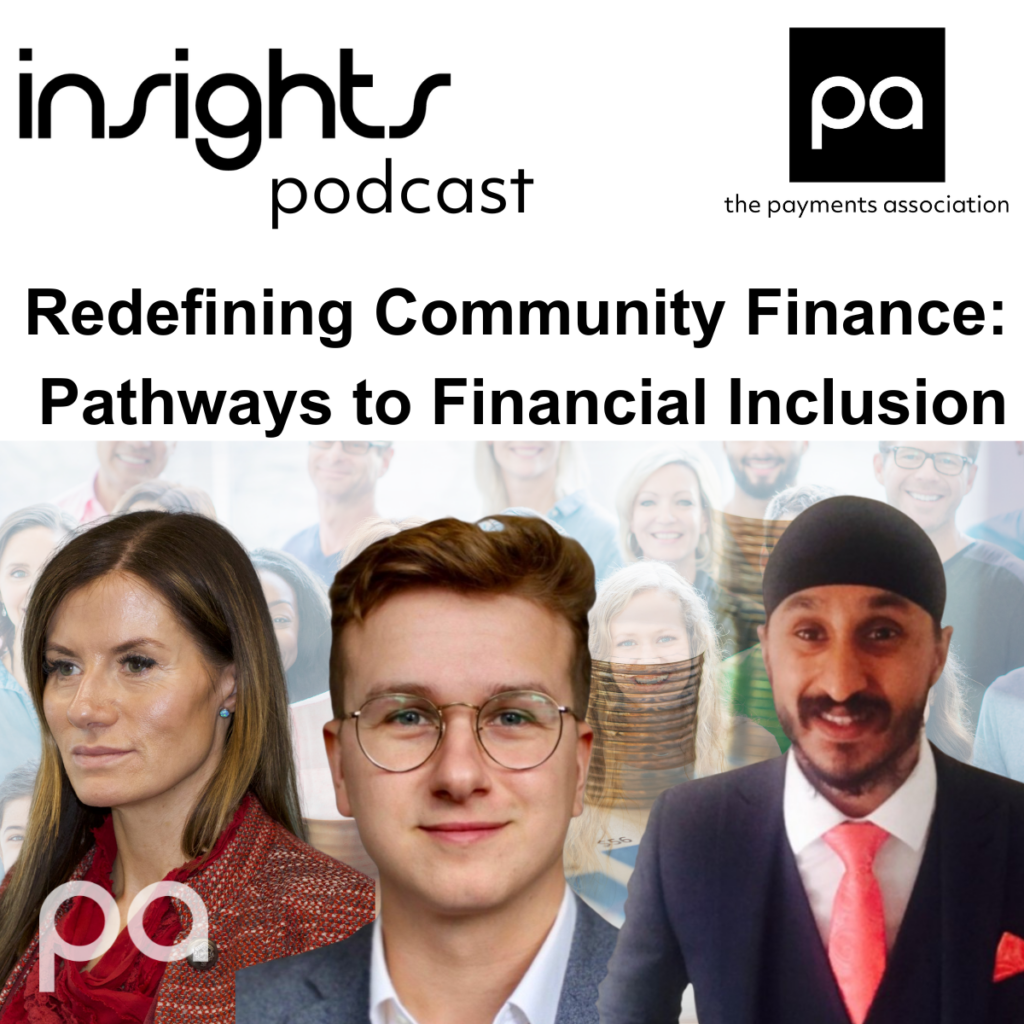
Join Gurminder Bhagrath, COO of Plane Saver Credit Union, Karen Elliott, Professor in Finance & FinTech at The University of Birmingham, and Shaun May, Director, Strategy, Sustainability and Innovation, Coutts, and Inclusion Working Group member, as they delve into the challenges and opportunities in community finance. This special episode of the Insights Podcast with the Inclusion Working Group explores innovative approaches to financial inclusion, the role of technology, and the critical need for collaboration across sectors. Discover insights from industry leaders and practical solutions to empower underserved communities and build financial resilience.
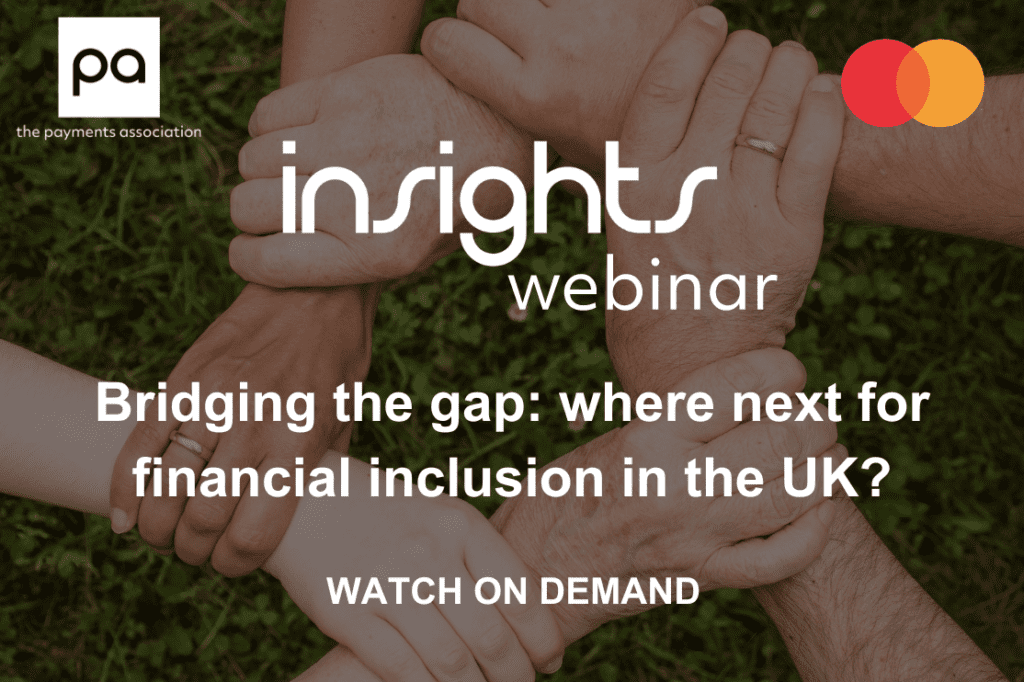
It’s been ten years since the last big report on Financial Inclusion in the UK. Over the last decade, the financial services industry has evolved rapidly with new and innovative technologies helping
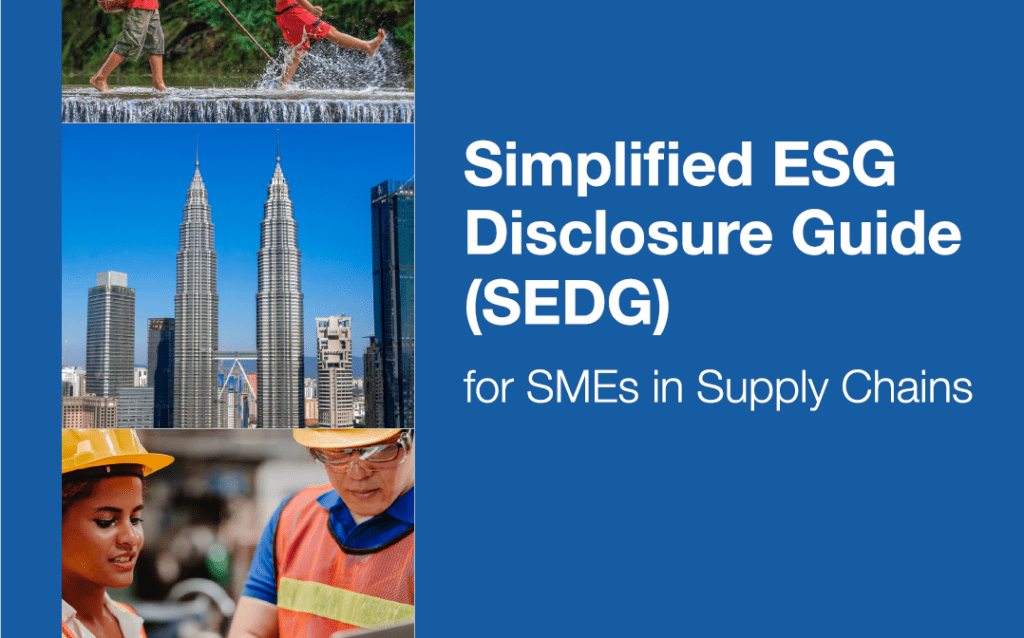
The SEDG is a guide to help your company decide what Environmental, Social and Governance (ESG) disclosures to track and report. It covers indicators that can be tracked and disclosed to measure ESG progress. The target users are SMEs that are compelled to track and report on ESG data – usually because they want to, they are being asked to, or they want to qualify for
incentives.
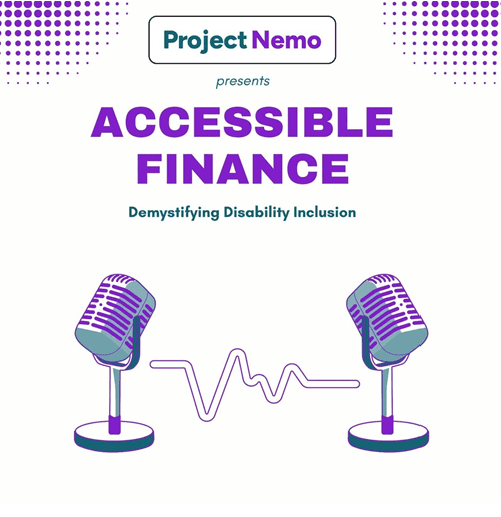
Project Nemo has launched a brand new podcast series – Accessible Finance – Demystifying Disability Inclusion. The limited-edition series will dive into different elements of disability inclusion, from inclusive workspaces and inclusive products and services to legal and regulatory requirements and how we measure progress.

The “Redefining Community Finance: Unlocking Pathways to Financial Inclusion” whitepaper by the Payment Association provided crucial insights and recommendations emphasising the need for enhanced innovation and support for the community
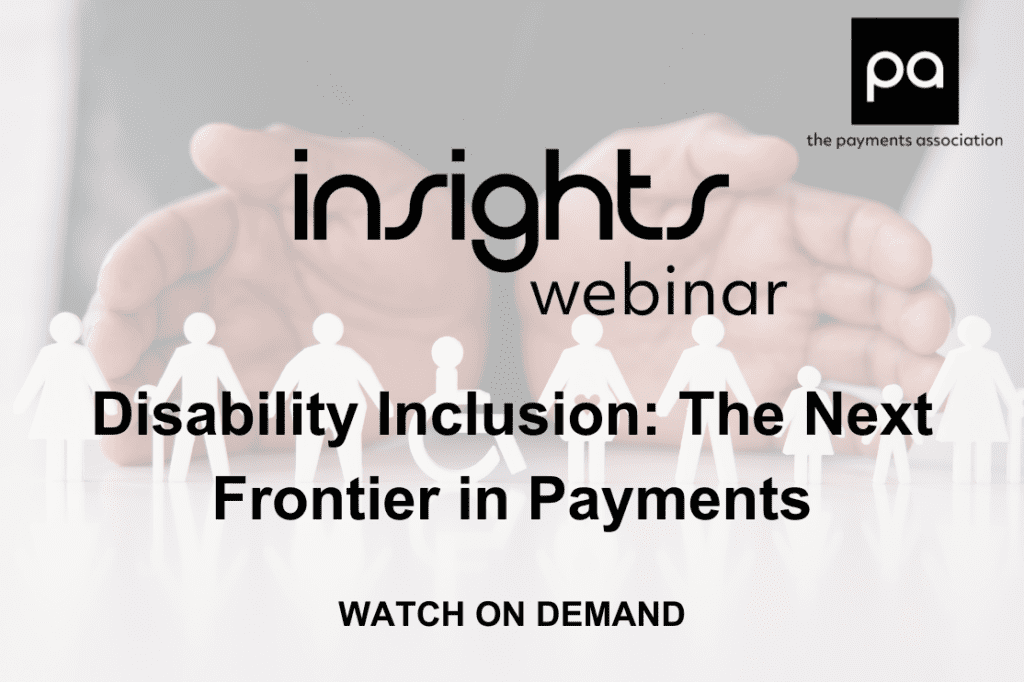
We’ve made great strides to broaden access to payments options, including a number of niche products to address specific customer groups. But have we yet considered the accessibility of all
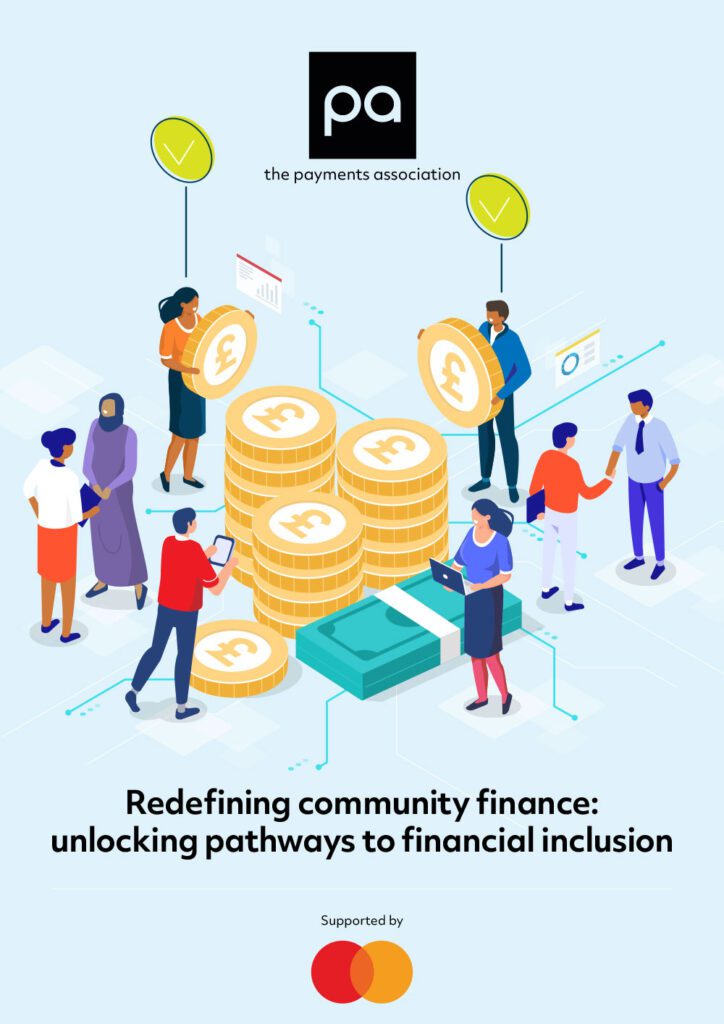
The FCA estimates that 12.9 million UK adults have low financial resilience – that’s one in every four. With millions struggling to make ends meet, community finance options are an
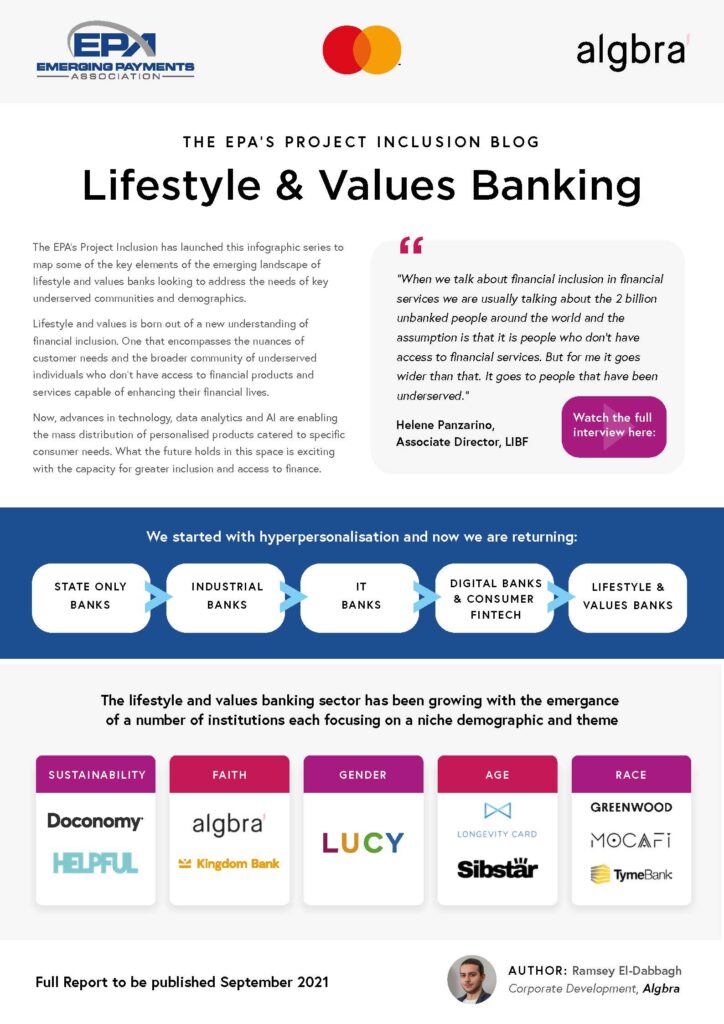
Financial inclusion has long been synonymized with the 1.7 billion unbanked across the world. This initiative highlighted the needs of significant communities beyond the unbanked, who seek financial products that
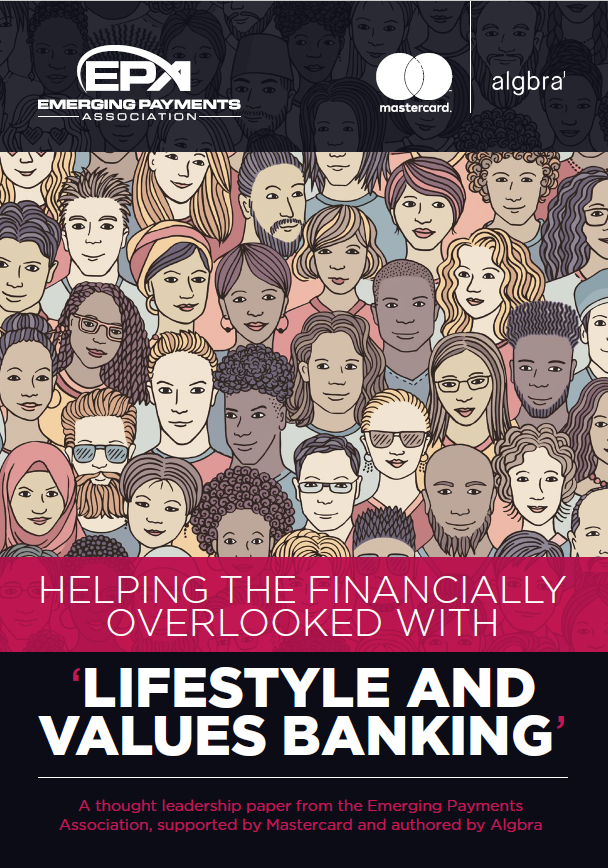
Discover the landscape of lifestyle and values banking propositions targeted at those overlooked in society, and how technology, consumer trends, and market forces are reshaping the retail banking industry.

This month’s podcast, moderated by Project Inclusion Lead Josh Berle, explores how digital and financial exclusion remain entrenched in today’s society and have been how they have only been exacerbated by the COVID-19 pandemic, specifically the cutting out of cash, and a lack of access to technology. The panel then moves on to what the FinTech industry is doing to tackle these issues, before touching on what financially inclusive payments could look like over the next 5 years.
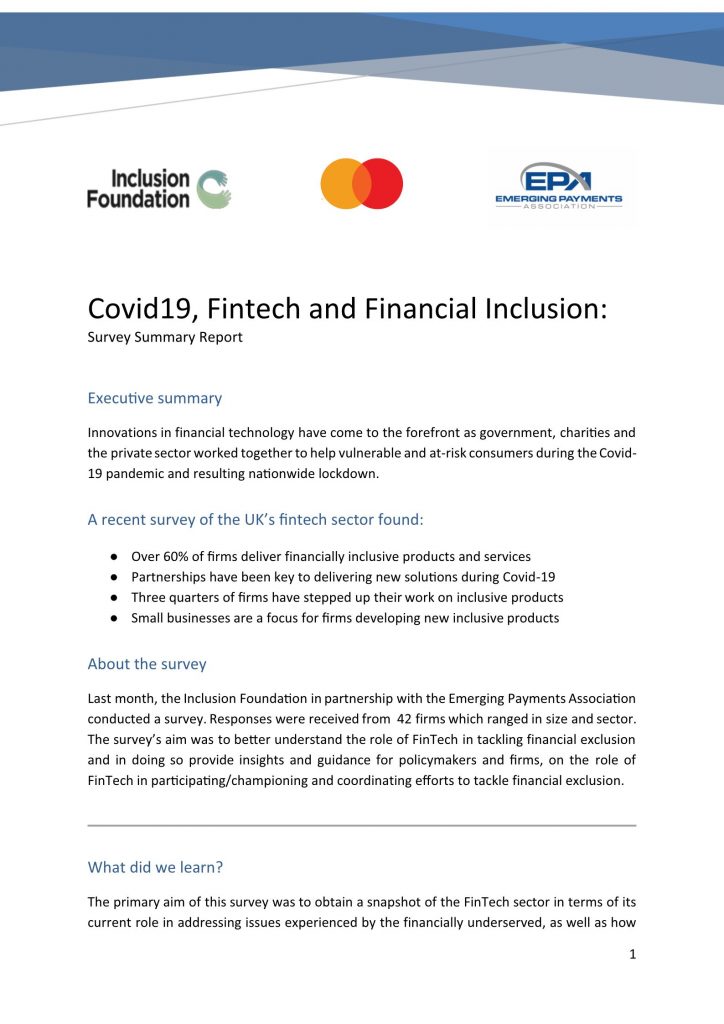
Last month, the Inclusion Foundation in partnership with the Payments Association conducted a survey with the aim to better understand the role of FinTech in tackling financial exclusion and in doing so provide insights and guidance for policymakers and firms, on the role of FinTech in participating/championing and coordinating efforts to tackle financial exclusion.
The Payments Association
St Clement’s House
27 Clements Lane
London EC4N 7AE
© Copyright 2024 The Payments Association. All Rights Reserved. The Payments Association is the trading name of Emerging Payments Ventures Limited.
Emerging Ventures Limited t/a The Payments Association; Registered in England and Wales, Company Number 06672728; VAT no. 938829859; Registered office address St. Clement’s House, 27 Clements Lane, London, England, EC4N 7AE.







Log in to access complimentary passes or discounts and access exclusive content as part of your membership. An auto-login link will be sent directly to your email.
We use an auto-login link to ensure optimum security for your members hub. Simply enter your professional work e-mail address into the input area and you’ll receive a link to directly access your account.
Instead of using passwords, we e-mail you a link to log in to the site. This allows us to automatically verify you and apply member benefits based on your e-mail domain name.
Please click the button below which relates to the issue you’re having.
Sometimes our e-mails end up in spam. Make sure to check your spam folder for e-mails from The Payments Association
Most modern e-mail clients now separate e-mails into different tabs. For example, Outlook has an “Other” tab, and Gmail has tabs for different types of e-mails, such as promotional.
For security reasons the link will expire after 60 minutes. Try submitting the login form again and wait a few seconds for the e-mail to arrive.
The link will only work one time – once it’s been clicked, the link won’t log you in again. Instead, you’ll need to go back to the login screen and generate a new link.
Make sure you’re clicking the link on the most recent e-mail that’s been sent to you. We recommend deleting the e-mail once you’ve clicked the link.
Some security systems will automatically click on links in e-mails to check for phishing, malware, viruses and other malicious threats. If these have been clicked, it won’t work when you try to click on the link.
For security reasons, e-mail address changes can only be complete by your Member Engagement Manager. Please contact the team directly for further help.